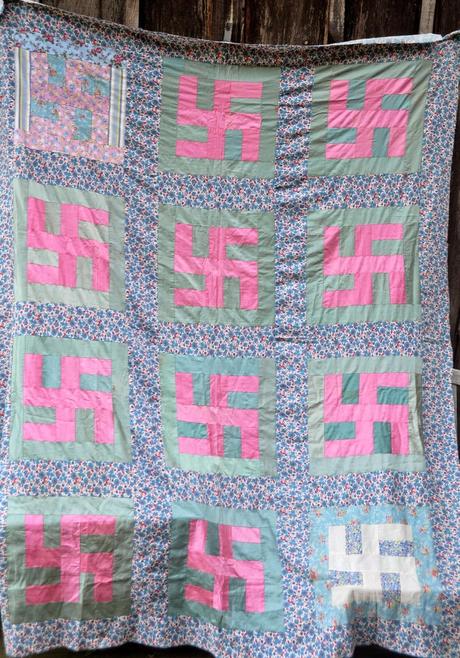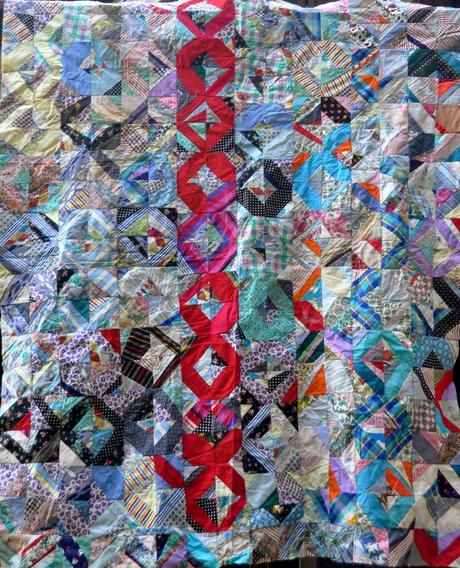
This is the other side of all those squares of newspaper I showed you yesterday -- a string-pieced quilt top. I was amazed when one of my students passed on two antique quilt tops to me, saying she had no place to display them. Thank you so much, Dannie!
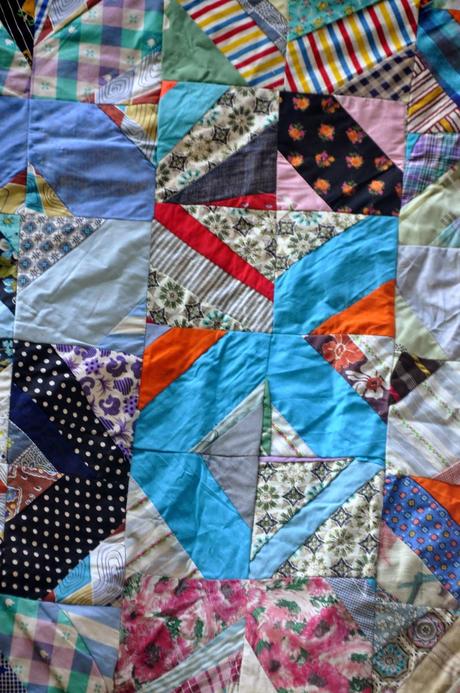 This quilt, as a date on one of the newspapers tells us, was at least partially pieced in 1961 -- or after. Sometimes a quilt gets worked on over a long period of time and even by several generations.
This quilt, as a date on one of the newspapers tells us, was at least partially pieced in 1961 -- or after. Sometimes a quilt gets worked on over a long period of time and even by several generations.
Some of the newspaper squares are dated 1959 -- and looking at the quilt it seems as if two different tastes at work -- subdued and subtle in the upper left corner and then there's all that red in the center and orange on the right. Of course it could well be the same seamstress who got a sudden influx of bright colors in her scrap bag when the Sixties hit -- perhaps she was sewing for a teenage granddaughter. The essence of string quilts is economy -- use what you have.
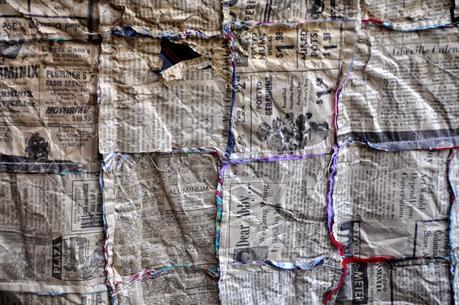
Here's a LINK to a tutorial explaining how string piecing is done. Fun and easy -- and usually one tears the paper away before adding batting and a back. But I'm in love with the historical aspect -- the prices, for instance -- and will likely display the quilt newspaper side out.
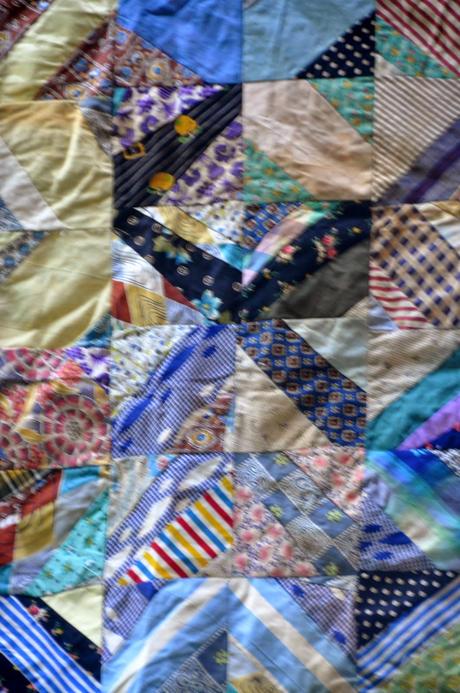 Then there was the other quilt top -- beautiful pinks and greens that make me think of the Twenties, carefully handstitched together . . .
Then there was the other quilt top -- beautiful pinks and greens that make me think of the Twenties, carefully handstitched together . . .
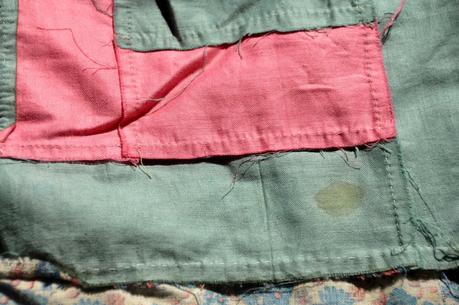
Lots of solids and some of what looks like feed sack material . . . Look at that sweet flowered pink , . . . swastika?
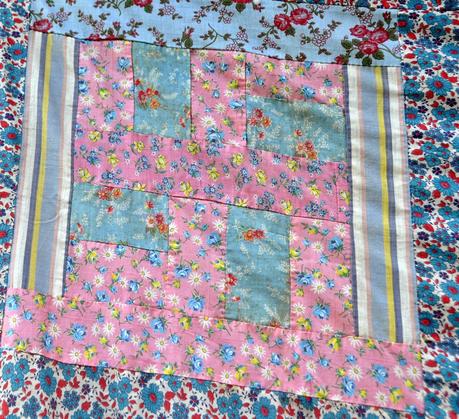
As it happens, the swastika was a widely used good luck symbol in many cultures and there are many examples of swastika quilts made before ever the Nazis adopted the symbol. I can just imagine someone beginning this quilt in the Twenties or Thirties and then sadly laying it aside rather than finishing.
HERE is the story of a similar quilt.
